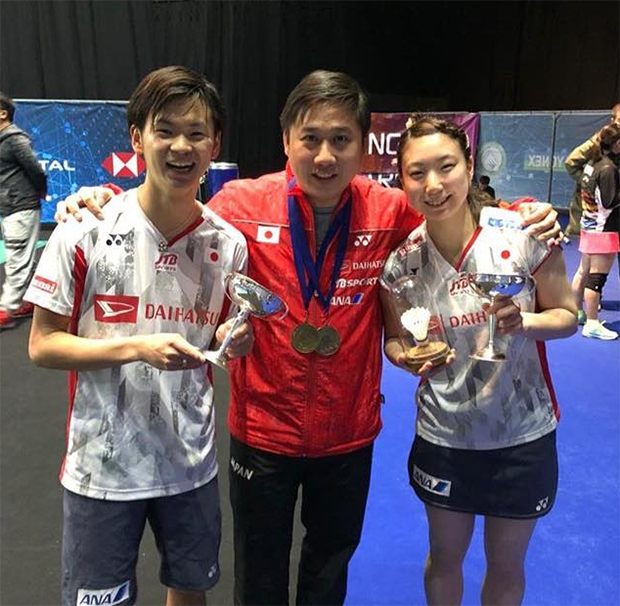
Kuala Lumpur: One person’s trash is another person’s treasure, Badminton Association of Malaysia (BAM) often blame the players and sometimes the coaches when Malaysian shuttlers performed poorly at international tournaments, but rarely criticize themselves in which BAM’s management has failed many coaches and has wasted a long list of talented young players.
After Malaysia’s 1-3 loss to India in the Commonwealth Games mixed team final on Monday, India’s doubles coach Tan Kim Her has received much attention from the Malaysian fans as he coached India’s mixed doubles pair to do the impossible by beating Malaysia’s Rio Olympic silver medalists Chan Peng Soon/Goh Liu Ying, which was a major reason for the defeat of Malaysia.
Tan told reporter after the tie that he’s a professional coach and is now working for India.
“My job is to improve my team’s performance and mixed doubles was the key in winning the Commonwealth Games mixed team event,” said Tan.
“Chan Peng Soon/Goh Liu Ying took the lead in the decider, but they lost focus and I told my players to take advantage of that,” added Tan.
Tan quit BAM in mid-2015 after he had spent more than a decade trying to raise the doubles standard of Malaysian badminton.
Prior to Tan Kim Her, another Malaysian coach Jeremy Gan who left BAM at the end of 2017, also created history by leading Japan’s unseeded mixed doubles duo of Yuta Watanabe/Arisa Higashino to claim Japan’s first ever mixed doubles crown in the 2018 All England. The Japanese pair have only been training under Jeremy since the start of 2018.

It was believed that Gan left BAM after he was demoted from the men’s’ doubles head coach to men’s doubles assistant coach in mid of 2017. When he was the mixed doubles coach in BAM, Chan Peng Soon/Goh Liu Ying became the country’s first mixed doubles pair to win an Open title.
And when he was moved as the men’s doubles coach, Goh V Shem/Tan Wee Kiong enjoyed their best year in 2016 by winning the Rio Olympics silver medals, Denmark Open and World Superseries Finals.
Frankly, BAM really need to develop wisdom and strengthen their decision-making ability, and to be more determined in upholding their protectionism mentality in order to stay competitive with new and traditional badminton powerhouses such as India, China, Indonesia, Denmark and Korea.













